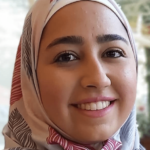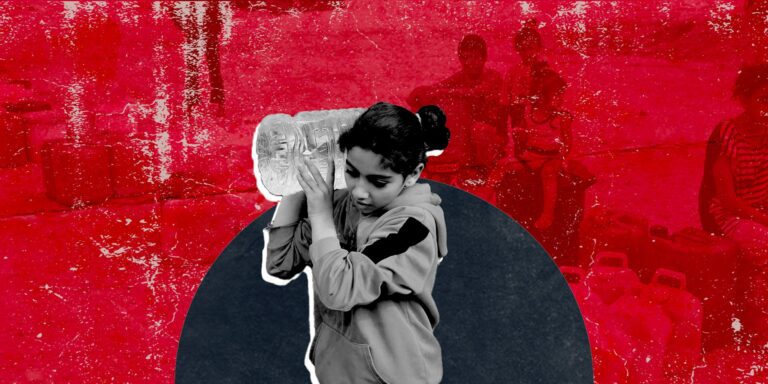In response to the question from Daraj about the reason for obtaining Dominican citizenship, the prominent Egyptian businessman Kamel Abu Ali replied with a sarcastic “Stay in your country.” He did not wish to respond to our questions and simply said, “We’ll see,” when we informed him that we had sent him the right to reply via email. He then deleted all messages on his side.
The name Kamel Abu Ali appeared in the Dominica Official Gazette, which includes individuals who obtained Dominican citizenship either by paying $200,000 or by investing in its lands for the same value. Abu Ali chose to invest in the Dominican Republic, according to the document seen by Daraj, and as a result, he, his wife, and children acquired Dominican citizenship.
This investigation is part of the “Caribbean Passports” cross-border investigative project led by the Organized Crime and Corruption Reporting Project (OCCRP), in collaboration with the Government Accountability Project, a non-profit organization based in Washington, and a number of media outlets in more than 20 countries, including Daraj. The project reveals the purchase of Dominican citizenship by approximately 7,700 individuals, enabling them to travel worldwide without a visa. This list includes a diverse group of politicians, dubious businessmen, criminals, and lawbreakers.
The Egyptian law, Law No. 26 of 1975 and its amendments, states that “an Egyptian shall not acquire foreign citizenship without the approval issued by the Minister of Interior, unless they remain considered Egyptian in all respects, unless the Cabinet decides to revoke their citizenship in accordance with the provisions of Article 16 of this law.” Article 16 includes conditions under which the Cabinet may decide to revoke Egyptian citizenship, one of which being getting a foreign citizenship without the approval of the Cabinet.
Nevertheless, Abu Ali and his family obtained Dominican citizenship, and it is likely that he also obtained Swiss citizenship since he lived there for more than 12 continuous years, a period required according to Swiss law.
We tried to contact the Egyptian Ministry of Interior, currently headed by Major General Mahmoud Tawfiq, via their email to inquire about the background of Abu Ali’s acceptance of foreign citizenship, but we did not receive a response.
Dominican Citizenship
Kamel Abu Ali was born and raised in Egypt before heading to Switzerland for his studies. He worked as a waiter at a restaurant during his studies, and he insists on making this part of his story the opening address at the parties he hosts in his resorts. After 15 years in Switzerland, he acquired shares in the Swiss club Neuchatel and then married Mrs. Faiza Al Nahali, who holds Swiss citizenship.
Neuchatel Club did not respond to “Daraj’s” inquiries.
Abu Ali obtained Dominican citizenship in 2018 after registering his company, Egyptian Swiss Co. For Integrated Development, according to the regulations for Dominican citizenship granted to non-Dominicans, as seen by Daraj.
During the political transition and the arrival of Abdel Fattah el-Sisi to the presidency in 2014, and his re-election in 2018, the phenomenon of purchasing citizenship became widespread due to the political and economic instability and the weakness of the Egyptian passport in the past ten years. This is confirmed by the former deputy and opposition figure Ayman Nour, especially as the alternative passport provides security protection. Nour added that he does not know Abu Ali personally, only generally, and he assured Daraj that most businessmen in Egypt are forced to fund and appease the President, explaining that “those who do not do this are arrested.”
Some of the additional reasons for obtaining dual citizenship and the advantages of Dominican citizenship are as such:
1. Economic Uncertainty: Egypt underwent economic reforms as part of the International Monetary Fund’s loan program, which included measures such as subsidy cuts, exchange rate liberalization, and austerity measures. These reforms led to economic volatility, resulting in increased costs for some individuals and businesses. As a result, some businessmen seek to obtain a second passport as a means to enhance the flexibility of their investments and assets, especially in times of worsening economic crises.
2. Asset Diversification: Individuals acquiring a second citizenship have the opportunity to diversify their assets and investments in different countries. This strategic diversification aims to protect their wealth from potential economic fluctuations or political disruptions in their home country.
3. Ease of Travel: Caribbean nations, including Dominica, offer visa-free travel privileges for passport holders from specific countries, making travel more convenient for dual citizens.
4. Access to Investment Opportunities: Through citizenship or permanent residency programs with various investment incentives, individuals can access new avenues for business and investment opportunities abroad.
These reasons may have motivated Kamel Abu Ali to invest in Dominica to obtain a second citizenship. However, why did he choose Dominican citizenship specifically?
The Commonwealth of Dominica provides several incentives within its territory, as mentioned on its official website, making it an attractive destination for capital owners. These include:
1. Tax Advantages: Dominica does not impose taxes on wealth, gifts, inheritance, or earned capital on its citizens. This enables its citizens to minimize tax burdens.
2. Diverse Investment Opportunities: In various sectors of Dominica’s economy, including infrastructure, tourism, and sustainable development, there are diverse investment opportunities. Investors indirectly contribute to the country’s growth.
This combination of economic advantages and investment opportunities in Dominica could have been the key factors in Kamel Abu Ali’s choice to obtain Dominican citizenship.
Intricate Web of Relationships
Kamel Abu Ali’s complex web of relationships goes beyond Egyptian businessmen to include international football players as well. In 2018, when French player Karim Benzema, the former striker for Real Madrid, arrived in the Egyptian city of Hurghada, Kamel Abu Ali personally welcomed him at the airport. This invitation was extended by Abu Ali to attend the opening of his resort in the Marsa Alam region. Furthermore, he also accompanied Benzema to one of his tourist resorts bearing the name Pickalbatros.
He had already welcomed Portuguese striker Cristiano Ronaldo’s family to his resorts in 2017, as well as Spanish defender Sergio Ramos & his family in 2019. Abu Ali has become well-known for hosting football celebrities in his various resorts, which may be attributed to his close relationship with the Swiss president of FIFA, Gianni Infantino.
In addition to his business connections, Kamel Abu Ali has an intricate web of political relationships. After all, due to his field of work in Egypt, he had to work on developing his political work, which can explain his fast spreading across the industrial and touristic market.
Before the January 25 revolution that aimed to overthrow the regime of President Hosni Mubarak, Kamel Abu Ali was a key figure in providing financial support and funding to the Future of the Nation party, which was led by Mubarak.
Future of the Nation is often referred to as the “President’s Party” because it actively supports Egypt’s current president, Abdel Fattah Al Sisi. The party’s funding comes from Egyptian businessmen, with Kamel Abu Ali being among them. The chairman of the party, Mohamed Badran, confirmed to BBC Arabic that the party supported Sisi because he cared about the nation. Badran also emphasized that the party’s funding primarily comes from Egyptian businessmen, even naming Kamel Abu Ali as one such businessman.
Kamel Abu Ali also has his own gratitude toward President Sisi. Sisi contributed to rebuilding the Al Masry Club’s stadium, which serves as a club for the football team of the city of Port Said. This was a historic move according to Abu Ali, who praised Sisi’s decision.
In parallel, Al Masry signed a contract with Zila Capital, led by the Egyptian businessman Wael Ziadah, to be the exclusive financial coordinator for a new project aimed at developing a stadium complex with an estimated investment cost of up to 4 billion Egyptian pounds, or approximately 180 million US dollars by late 2022. This occurred at a time when Egypt was facing a severe economic crisis, which began in March 2022 due to rising inflation and a decrease in foreign cash reserves, primarily in US dollars.
What’s noteworthy is that Ziadah became a member of the board of directors of Banque du Caire in mid-2022. This bank itself is owned 99% by Banque Misr, which is entirely owned by the Egyptian government, as indicated on the bank’s official website.
In the sequence of events, shortly after Banque Misr purchased 99% of the shares of Banque du Caire, Kamel Abu Ali entered into a significant investment agreement with Ziadah. This move was quite remarkable, given the dire economic conditions in Egypt.
Ziadah did not respond to any of the questions Daraj had asked him regarding his partnership with Abu Ali.
Former Egyptian MP (2015-2020) and Egyptian director Khaled Youssef, participated with Abu Ali in several films, including notable ones like Wi’ja, Khayana Mashrooa, and Kaff El Qamar. Youssef has been involved in significant controversies and faced sexual harassment allegations. Attorney Samir Sabri filed a lawsuit against him and demanded his removal from the House of Representatives, as reported on Al Masry AlYoum platform.
Youssef also opposed the constitutional amendments in 2019, considering them a step back from democracy. He believed that the leaks about him on social media were merely a campaign against him and used parliamentary immunity to protect himself from legal actions.
We did not receive a response from either Youssef or Sabri.
A Hand In Every Sector
In 1992, Abu Ali returned to his homeland, Egypt, and founded his own brand, Pickalbatros, establishing hotels and resorts on the Red Sea coast in Hurghada. He also created villages and tourism companies, as well as a film production company named Albatros. Some of the notable films produced by Abu Ali include Zaki Chan, Ja’altani Moujriman, Matab Sina’i, and Kaff al-Qamar, among others. In a short period, he managed to secure a place among Egypt’s top businessmen and became a billionaire, serving as the chairman of the Red Sea Investment Association.
On the media front, Kamel Abu Ali owns shares in Egyptian Media Group, a company that is partially owned by the Egyptian government. Under this company’s umbrella are several prominent media institutions, including Al Youm Al Sabea, ON, and Al Hayah. It’s worth noting that Egypt’s General Intelligence Service also holds a stake in some of these institutions, including television channels, online platforms, and print media.
At the same time, leveraging his connections in Switzerland, he was elected as the president of Al Masry football club in 1997 and remained in that position for just one year. During his presidency, the club won the Egyptian Premier League title, which is considered a prestigious league in Egyptian football. However, he was reappointed as the president after the Egyptian Revolution, and he resigned after the Port Said Massacre.
The Port Said Massacre was associated with Al Masry in 2011, following the outbreak of the January 25th Revolution, aimed at toppling the regime of President Mubarak. At that time, Al Ahly fans, who had a massive fan base in Egypt and were supporting the revolution, were attacked during a match with Al Masry. Over 70 people were killed. Many, including the club’s administration, fans, and players, believed the attack was premeditated and well-organized due to a lack of security checks before the match and the lax treatment by security forces. This was documented in a report published by The Guardian.
Following the resignation and the massacre, Kamel Abu Ali was reappointed as the club’s president in 2022, a position he continues to hold. However, recent financial issues arose between the club’s administrators, which led to Kamel Abu Ali offering his resignation, but the board repeatedly rejected it. Additionally, the club’s coach, Hossam Hassan, was fined due to disagreements.
In the tourism sector, Kamel Abu Ali owns tourism companies and resorts both inside and outside Egypt. His luxury tourist resorts in Egypt are located in Hurghada and Sharm El Sheikh. In detail, Abu Ali owns six tourist resorts in Sharm El Sheikh and Marsa Alam, three additional resorts in Nabq Bay and Naama Bay in Sharm El Sheikh, and three more resorts in Marsa Alam. He offers over 1,250 luxury hotel rooms and suites. Furthermore, his group manages 14 resorts in Sharm El Sheikh, Hurghada, Sahl Hasheesh, and Marsa Alam.
His Son’s Court Case
In 2021, an accident in Hurghada led to the death of a decorator, May Eskander, in a location closely associated with Kamel Abu Ali’s tourism empire. Surveillance cameras revealed that the accident was caused by Haytham Abu Ali, Kamel Abu Ali’s son.
Haytham Abu Ali, who holds Swiss citizenship due to his Swiss-born mother, had other legal issues which eventually led him to being imprisoned for three years, a judgment determined by the Court of Cassation, the highest-ranking court in Egypt, sitting on the top of the judicial pyramid. Not only was he driving against traffic at excessive speeds exceeding the limits permitted by Egyptian traffic laws, but he was also under the influence of drugs, as confirmed by the public prosecutor. Nevertheless, the Court of Cassation acquitted him of these charges.
The court justified the acquittal by noting that Haytham had consumed drugs in Switzerland before his arrival in Egypt, and therefore, he could not be charged with violating Egyptian law. However, Haytham Abu Ali did admit to using drugs, as reported by Egyptian newspaper Al Dostor.
Therefore, the court decided as follows: “Haytham Kareem Kamel Hassan Abu Ali is acquitted of the first, third, and fourth charges mentioned in the referral order,” which pertained to drug and alcohol consumption, as reported by Al Dostor.
Consequently, the court imposed a fine of 50,000 Egyptian pounds (approximately $2000 at the time) and ordered him to pay 1 million Egyptian pounds (over $63,600) as temporary civil compensation, along with hard labor in prison.






